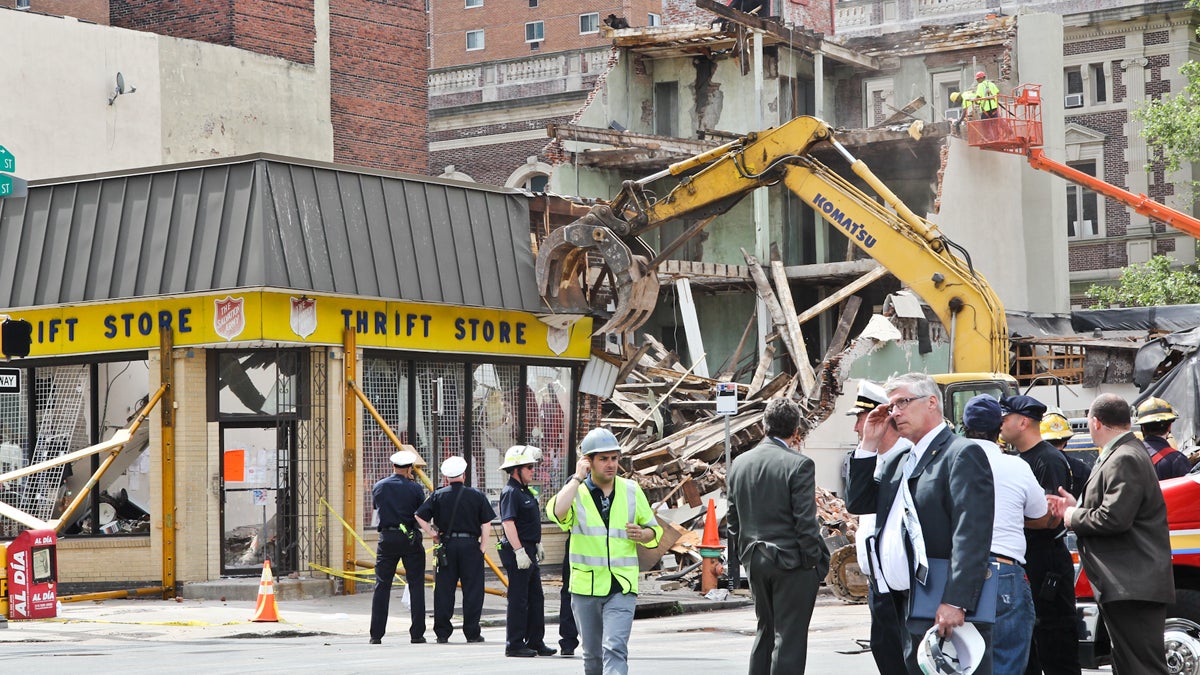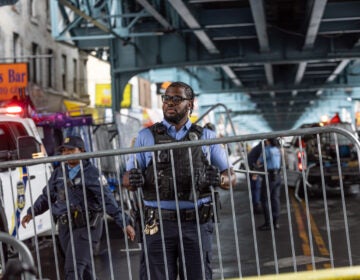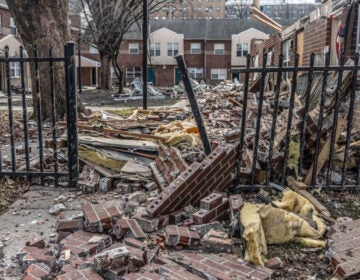In wake of Philadelphia building collapse, permit ‘expediters’ are questioned

The June 5 collapse of a Center City Philadelphia building left six people dead. (Kimberly Paynter/WHYY)
In February, architect Plato Marinakos helped win a permit to demolish the now-crumbled building at 22nd and Market streets — even though he wasn’t the contractor doing the work.
Marinakos is an “expediter,” a profession that is 100 percent legal in Philadelphia.
In the wake of Wednesday’s demolition gone wrong, which claimed six lives, community leaders are raising questions about expediters.
What does an expediter do?
Every day, expediters are paid to quickly secure city licenses, permits and certificates for other people. Developer STB Investments paid Marinakos a fee to acquire the demolition permit for contractor Griffin Campbell Construction, and Marinakos did not sign off on the blueprints, according to media reports.
On Wednesday, Marinakos stressed to WHYY that he had nothing to do with the actual demolition. He bowed out after cinching the permit, he said.
Former City Councilman James Tayoun, perhaps the most famous past expediter in Philadelphia, said an expediter’s job is to cut through red tape. He went to federal prison in the 1990s for bribing and being bribed, sometimes while working as an expediter.
“An expediter’s used by people, in business particularly, who are in a hurry to get permits through the system,” Tayoun said. “That’s because there’s so many impediments in the bureaucracy.”
Community leaders, City Hall sources and other experts said expediters run the gamut. Some are helpful folks who simply wait in line for big-time developers, so they don’t have to fritter away in Philadelphia’s Municipal Services Building, they said.
Others rush through the process of obtaining permits, making it hard for community groups to keep a close watch on development projects, they said. Even worse, they argue, the city provides little oversight.
Who can expedite?
As president of the Juniata Park Civic Association, Kate Clarke has met several unsavory expediters.
“They try and railroad you through the process,” she said, “without giving the community enough time to really digest what they’re talking about.”
It’s not clear whether Marinakos falls into the category of good or bad expediter. On Wednesday, he told WHYY he was surprised and saddened by the building collapse. He has not returned our messages since.
Marinakos has an expediter’s license, according to Maura Kennedy, spokeswoman for Philadelphia’s Licenses and Inspections department. To obtain a license, expediters must pass a criminal background check, show proof of insurance and have a city tax account, she said.
Clarke believes the city’s regulations should be more rigorous.
So does Christopher Sawyer, a community activist who works with the Olde Richmond Civic Association on zoning issues. He argues that expediters should be required to present their drivers licenses and disclose the project’s developer, which can sometimes be difficult to identify.
“The corporate veil is pretty thick,” Sawyer said.
Thankfully, he noted, in the case of Wednesday’s tragedy, the developers were quickly apparent.
Kennedy said the city is planning to make some permit applications available online in the future, which could eventually put some expediters out of business.
WHYY is your source for fact-based, in-depth journalism and information. As a nonprofit organization, we rely on financial support from readers like you. Please give today.




